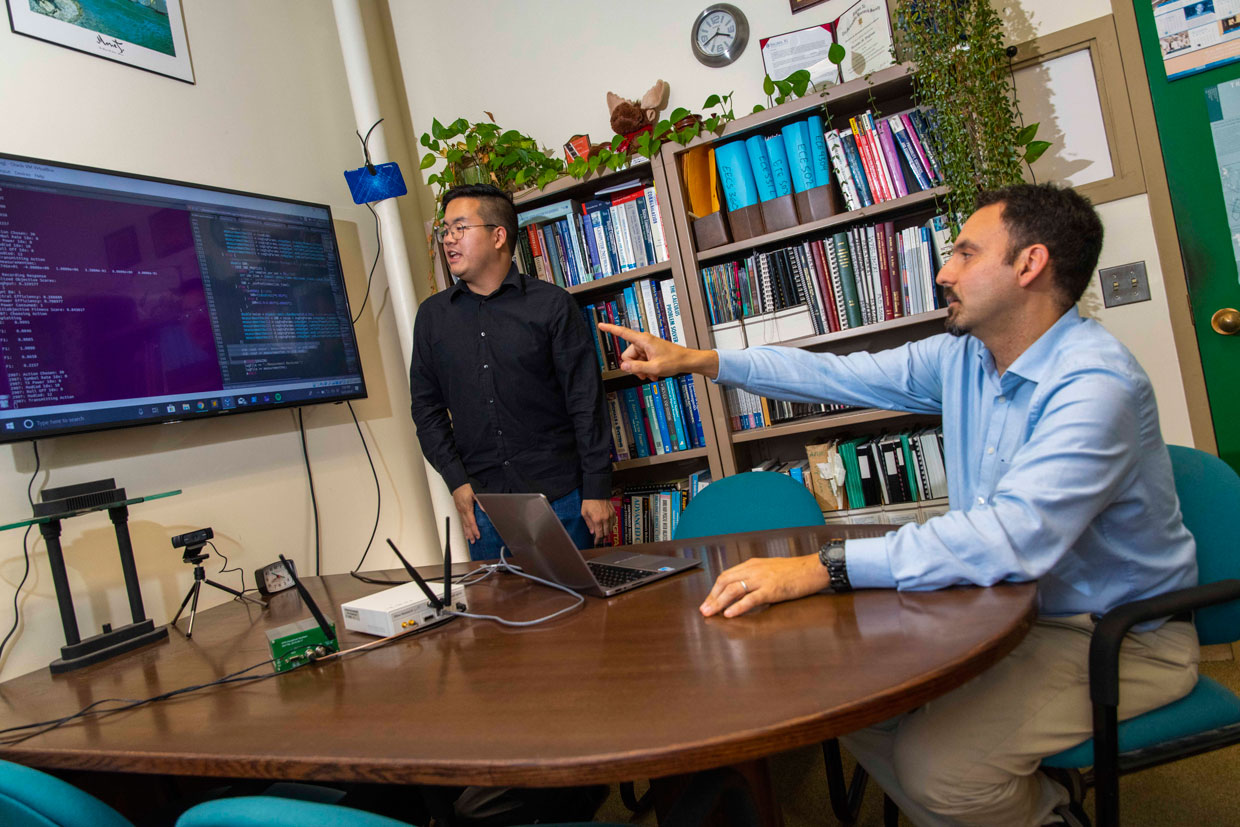Machine Learning Could Boost Space Communications
- by 7wData

A team of researchers says it has developed the next generation of space communications, using a reinforcement learning neural network (RLNN), a form of Machine Learning. The researchers use an algorithm to enable cognitive radio functions so that a communications system can autonomously adapt itself. With an RLNN, a radio can optimize its operating parameters or select the best wireless channel in its vicinity in order to avoid interference created by space weather, solar storms, and other noise that interferes with signals.
The architecture has been successfully evaluated on the Space Communications and Navigation (SCaN) Testbed aboard the International Space Station. NASA uses the vehicle to research radio communications and GPS. The test bed includes three software-defined radios that can be reprogrammed for communications research experiments.
“Multiobjective Reinforcement Learning for Cognitive Satellite Communications Using Deep Neural Network Ensembles,” the article outlining the approach, was published in the May edition of the IEEE Journal on Selected Areas in Communications.
The team includes researchers from NASA’s Glenn Research Center, Penn State University, and Worcester Polytechnic Institute (WPI). Four are IEEE members: Sven Bilén, Timothy Hackett, Randy Clinton Paffenroth, and Alexander Wyglinski.
Radio spectrum, which is finite, must accommodate all forms of wireless communications including cellphone calls and data traffic—which are increasing at an unprecedented rate. Software-defined radios can be used to implement cognitive radios in order to allow spectrum to be used more efficiently. For example, a cognitive radio transceiver can scan for unoccupied bands and change its transmission and reception parameters to different frequencies during heavy data loads without interruption. It also can listen for interference on busy channels and calculate a way to reduce it so more people can use the channels.
Congestion of the radio frequency spectrum in space is similar to that on Earth. Those using the spectrum are restricted to certain segments of the airwaves, but there are so-called white spaces that anyone can use as long as there’s no licensed activity on it. Those hoping to use those white spaces must compete not only with one another but also with naturally occurring phenomena, like space weather and electromagnetic radiation emitted by the sun and other celestial bodies.
Current space communication systems use radio-resource selection algorithms, but they’re rudimentary and work with a preprogrammed look-up table for adaptive communications, according to the article.
[Social9_Share class=”s9-widget-wrapper”]
Upcoming Events
From Text to Value: Pairing Text Analytics and Generative AI
21 May 2024
5 PM CET – 6 PM CET
Read More


